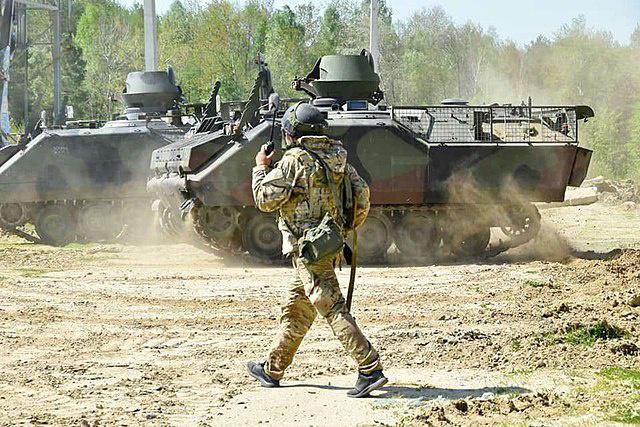It’s no secret the Ukrainian army plans to launch a major counteroffensive this spring, perhaps as soon as the post-winter mud dries up. We may already have observed the initial Ukrainian probes that could precede a wider attack. But the probes were extremely costly for the Ukrainians—and underscore the peril of any effort by Kyivs to shift from defense to offense.
Since last fall, Kyiv’s forces mostly have been fighting defensively from positions they had months to prepare. To advance, they must leave these positions and expose themselves to Russian fire. Especially where the terrain is flat and open.
Many observers expect the counteroffensive to begin in Zaporizhzhia Oblast in southern Ukraine. A left hook from Zaporizhzhia, driving south toward the Black Sea then pivoting west toward the mouth of the Dnipro River, could cut the Russian army in two and position the Ukrainian army for an eventual liberation of the Crimean Peninsula. If that’s the case, and the Ukrainians are poised for a Zaporizhzhia left hook , we should expect to see reconnaissance operations in the weeks preceding the attack.
Which is why recent operations by the Ukrainian 128th Mountain Brigade , garrisoned just south of Zaporizhzhia city, are both good news and bad news for Kyiv. The brigade seems to be escalating its recon ops with large-scale probes of Russian defenses along the Zaporizhzhia sector. That’s a prerequisite for an eventual counteroffensive.
But these ops seem to have gotten a lot of Ukrainian troops injured or killed. A reconnaissance-in-force in the direction of Robotyne—around five miles south of the southern front line—by the 128th Mountain Brigade and nearby territorial brigades—ran into devastating Russian fire on or before Friday. The Ukrainians left behind at least four ex-Dutch YPR-765 tracked armored personnel carriers: two that burned out, another two that seem to be damaged but largely intact.
It’s unclear how many Ukrainians were hurt or killed. A 14-ton YPR-765 has a crew of three and carries as many as seven infantry. One video from the skirmish depicts a YPR-765 taking a hit—from an anti-tank missile or tank shell, apparently—and billowing smoke as at least six Ukrainians bail out, one of them apparently dragging a wounded seventh comrade.
The same video helps to explain why the recon-in-force suffered such heavy losses. The Ukrainians attacked in broad daylight along the treeless fields north of Robotyne. Russian drones observed their movements.
Absent a major effort by Ukrainian artillery to suppress Russian forces, the thinly-armored YPR-765s were easy prey for the Russians’ missiles and guns. Forces are thin on the ground in southern Ukraine. Just nine Russian and separatist regiments, each with at most a couple thousand troops, hold a 50-mile-long sector between the Dnipro River and the town of Staromlynivka.
Ukraine’s southern command oversees nine or 10 brigades in the same area. In the south, neither the Russians nor Ukrainians have a manpower advantage. But since attacking almost always is costlier than defending is, that parity favors the defender.
To avoid the kinds of losses it suffered outside Robotyne last week, the Ukrainian army needs to reinforce its southern brigades—and deploy more artillery. Reinforcements might be on the way. Even as the brutal battle raged in and around Bakhmut in eastern Ukraine’s Donbas region this winter, the Ukrainian general staff held back many of its newest brigades—while also pulling back a few battalions from its veteran brigades so that those battalions could reequip with Western-made tanks and fighting vehicles.
Recon probes by Ukrainian forces imply a counteroffensive is developing. Once major Ukrainian reinforcements arrive, the attack is imminent. .
From: forbes
URL: https://www.forbes.com/sites/davidaxe/2023/03/19/the-ukrainian-army-is-probing-russian-lines-in-the-south-and-suffering-heavy-losses/



